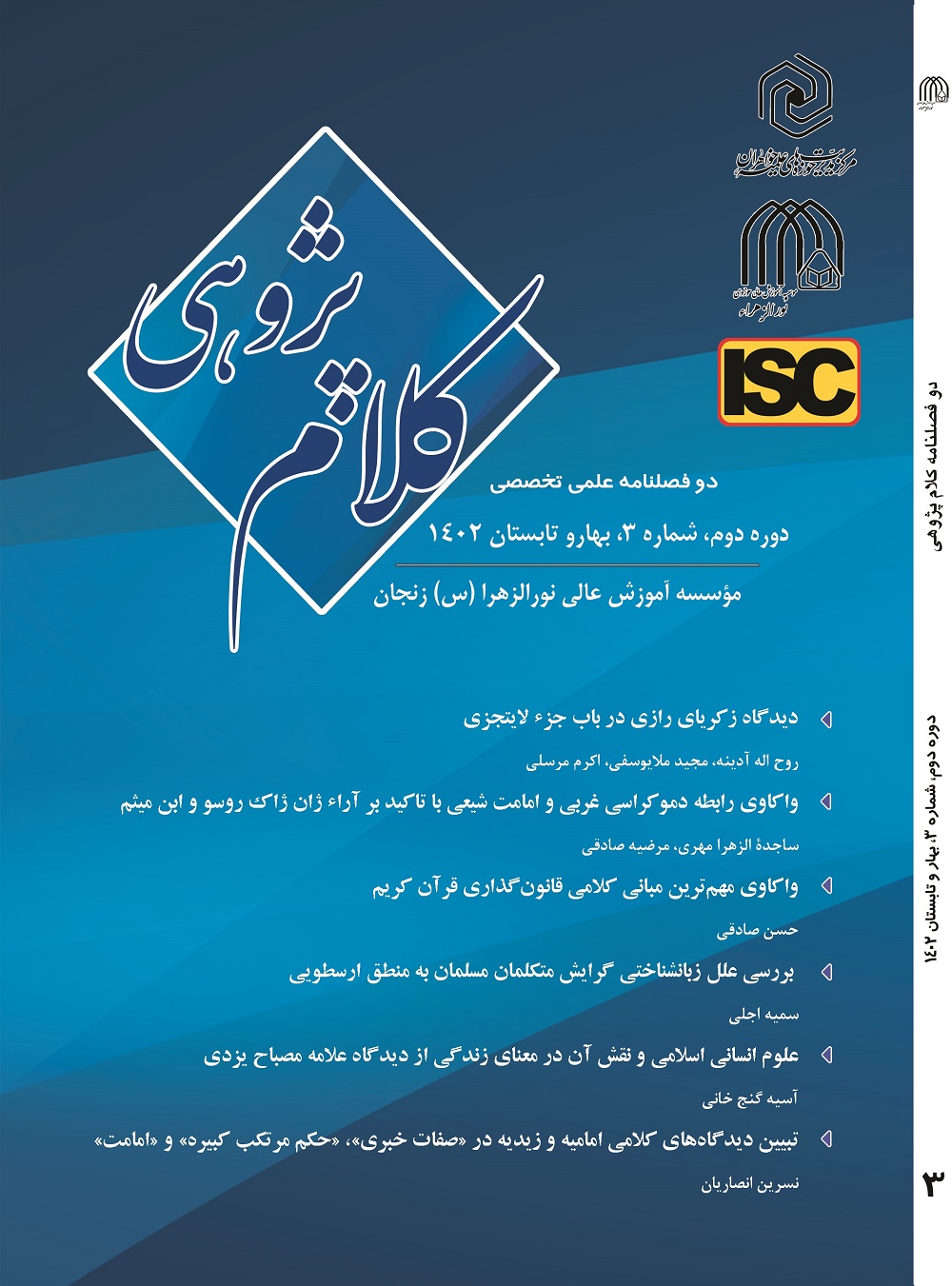نوع مقاله : مقاله پژوهشی
نویسنده
دانشیار فلسفه دانشگاه خوارزمی
چکیده
نهضت عاشورا دچار انواع تحریفات لفظی و معنوی شده است که نقش عوام شیعیان در وقوع آنها برجسته است. به نظر میرسد غفلت از علل و فلسفة وقوع حادثة کربلا، و دلمشغولی به امور عرضی آن و پیوند گرامیداشت نهضت عاشورا با معیشت مردم، موجب گسترش چنین تحریفاتی شده است. همچنین غلبة رویکرد عاطفی موجب چشمپوشی مردم از اتخاذ رویکرد عقلانی به این نهضت گردیده است. علاوه بر این موارد، عواملی چون تقدس-سازی و تفسیر استثنایی، تفسیر شفاعتمحور، عرفگرایی و تلقی عادتمحور از نهضت عاشورا، از موارد مهم تحریفات این واقعه است. در این تحقیق ضمن آسیبشناسی علل و عوامل مختلف تحریف نهضت عاشورا، بر خطاهای رایج شیعیان در مواجهه با پاسداشت این نهضت و راهبردهای مواجهه با آنها تاکید خواهد شد. برخی از این خطاها عبارتند از: غفلت از فلسفه و اهداف نهضت عاشورا و تمرکز بر روشهای عزاداری، عاطفهگرایی و احساسگرایی، نگرش طلبکارانه نسبت به امام حسین (ع)، محوریت روضه خوانان و مداحان بازاری بهجای علما و نخبگان دردمند، آمیخته شدن نهضت عاشورا با فرهنگهای قومی و قبیلهای، و خلط در معیارهای حسینی بودن. در مواجهه با آسیبهای مذکور راهبردهای زیر پیشنهاد میشود: ضرورت شناخت دقیق تاریخ عاشورا توسط عموم شیعیان، لزوم بازخوانی مداوم فلسفه و اهداف نهضت عاشورا، اهمیت تفکیک ذاتیات و عرضیات نهضت عاشورا از همدیگر، آسیب شناسی و اصلاح سنت روضهخوانی و مداحی، و تلاش برای تعمیق فهم مردم از آموزههای اصیل عاشورایی.
کلیدواژهها
عنوان مقاله [English]
Pathology of distortions of Ashura movement and strategies to face it
نویسنده [English]
- qodratullah qorbani
Associate Professor of Philosophy, Khwarazmi University
چکیده [English]
The Ashura movement has undergone all kinds of verbal and spiritual distortions, the role of the Shia people in their occurrence is prominent. It seems that the neglect of the causes and philosophy of the Karbala incident, and the preoccupation with its side issues and the connection of honoring the Ashura movement with people's livelihood, have caused the spread of such distortions. Also, the predominance of the emotional approach has caused people to overlook the adoption of a rational approach to this movement. In addition to these cases, factors such as sanctification and exceptional interpretation, intercession-oriented interpretation, traditionalism and habit-oriented perception of the Ashura movement are among the important distortions of this event. In this research, along with the pathology of the various causes and factors of the distortion of the Ashura movement, the common mistakes of Shiites in facing the observance of this movement and the strategies to face them will be emphasized. Some of these errors include: neglecting the philosophy and goals of the Ashura movement and focusing on mourning methods, emotionalism and emotionalism, a demanding attitude towards Imam Hussain (a.s.), the focus of prayer singers and market preachers instead of scholars and suffering elites, the mixing of the Ashura movement. with ethnic and tribal cultures, and confusion in Hossein's criteria. In the face of the aforementioned harms, the following strategies are suggested: the necessity of accurate knowledge of the history of Ashura by the general Shia, the necessity of constantly re-reading the philosophy and goals of the Ashura movement, the importance of separating the essences and side effects of the Ashura movement from each other, pathology and reforming the tradition of prayer and praise, and efforts to Deepening people's understanding of the authentic Ashura teachings.
کلیدواژهها [English]
- Ashura Movement
- Distortion
- Shias
- rational approach
- Objectives of Ashura event

